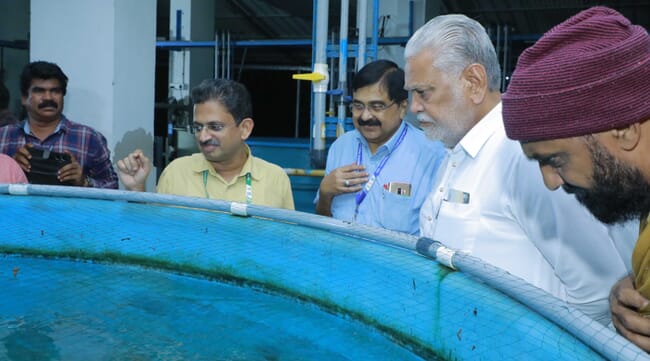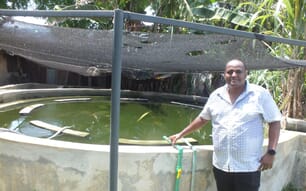
© CMFRI
Speaking during his visit to the Vizhinjam Regional Centre of the ICAR-Central Marine Fisheries Research Institute (CMFRI), Shri Parshottam Rupala said: “Cage fish farming is to be expanded to the offshore waters with better cage designs, having a 30 m diameter or above, that can accommodate lakhs of juveniles.”
Currently, cage farming is undertaken in nearshore waters using the 6 metre diameter cages.
He added that CMFRI should spearhead research and development efforts in creating these advanced cages.
“This is expected to significantly boost mariculture production in the country,” the minister said.
He also urged CMFRI to expand seed production technologies for finfish to all the coastal states, utilising public-private-partnerships (PPPs). This would help address the seed constraints and make available the required seeds to fish farmers all over the country.
The minister indicated that the central government would soon come up with a mariculture leasing policy to ensure the sustainable use of mariculture resources.
“This will ensure that mariculture operations are located in suitable areas and they do not cause environmental damage,” he said.
The minister also underscored the untapped potential of pearl oyster production, urging CMFRI to take a proactive role in scaling up the sector. Acknowledging the critical role of hatchery technologies in supporting large-scale pearl oyster production, he emphasised the necessity of research and innovation in this area.
Furthermore, the minister proposed a pioneering sea ranching programme of the hatchery-produced spats of the pearl oyster along the Tuticorin coast, which would be executed under the guidance of the CMFRI.
He also suggested that effective marketing avenues should be developed for marine ornamentals, urging CMFRI to collaborate with relevant stakeholders to establish effective marketing strategies.




